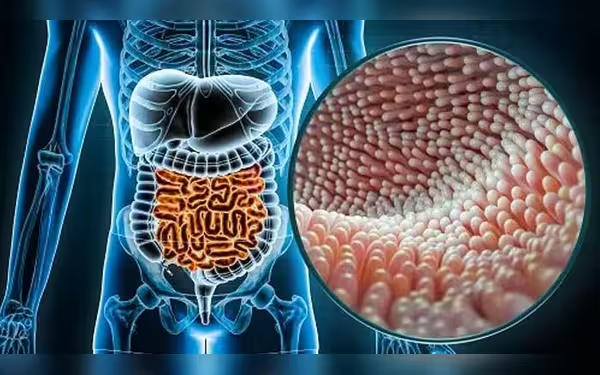Tuesday, July 2, 2024 03:48 PM
Dr. James Lee's Discovery Revolutionizes IBD Treatment
- Identification of key factor in IBD development opens new treatment possibilities
- Understanding disrupted pathway in IBD crucial for effective treatment
- Breakthrough offers hope for over 7 million global IBD sufferers
 Image Credits: thenews
Image Credits: thenewsRecent groundbreaking discovery in IBD research reveals key biological pathway, offering hope for improved treatment options worldwide.
Researchers have recently made a groundbreaking discovery in the study of inflammatory bowel disease (IBD) and other immune-related conditions affecting the body. This discovery has brought hope to many individuals worldwide. The key factor identified in the development of IBD has opened up new possibilities for treatment, as existing medications can target this biological pathway.
The central pathway that malfunctions in individuals with IBD has been a significant focus of research. Dr. James Lee, from the Francis Crick Institute in London, has hailed this finding as pivotal. Understanding how this pathway is disrupted not only deepens our understanding of the disease but also points towards potential treatment avenues.
In the United Kingdom alone, more than half a million people are affected by inflammatory bowel disease, with Crohn’s disease and ulcerative colitis being the primary forms. Globally, over 7 million individuals suffer from these conditions. Symptoms can vary from abdominal pain, weight loss, and diarrhea to blood in stools, as the immune system mistakenly attacks the bowel. While medications like steroids can help alleviate symptoms, some patients may eventually require surgical intervention to remove affected bowel segments.
The recent breakthrough in understanding the biological pathway behind inflammatory bowel disease offers new hope for patients worldwide. With ongoing efforts to tailor existing medications to target this pathway, there is optimism for improved treatment options in the future. This discovery not only sheds light on the mechanisms of IBD but also underscores the importance of continued research in finding effective solutions for individuals battling these immune-related conditions.












